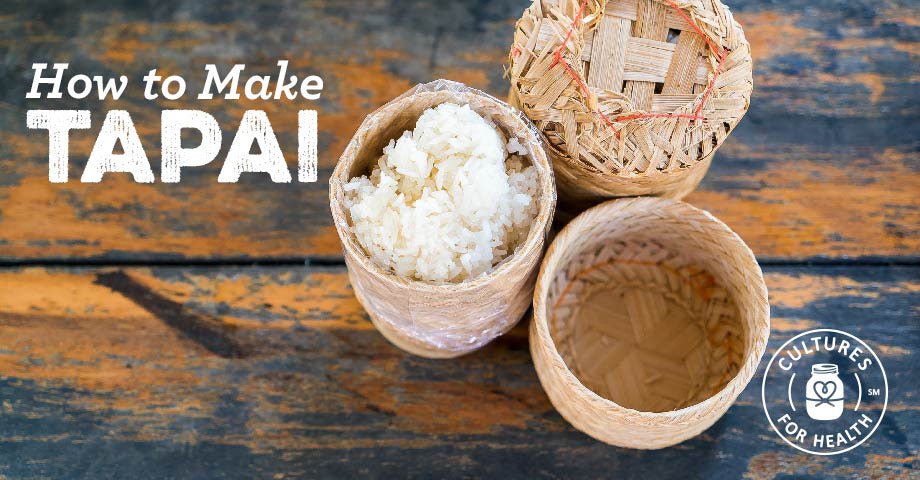Tapai
tape, tape pulut, tapai pulut
Tapai is a traditional fermented preparation of rice or other starchy foods, and is found throughout much of Southeast Asia, especially in Austronesian cultures, and parts of East Asia. It refers to both the alcoholic paste and the alcoholic beverage derived from it. It has a sweet or sour taste and can be eaten as is, as ingredients for traditional recipes, or fermented further to make rice wine (which in some cultures is also called tapai). Tapai is traditionally made with white rice or glutinous rice, but can also be made from a variety of carbohydrate sources, including cassava and potatoes. Fermentation is performed by a variety of moulds including Aspergillus oryzae, Rhizopus oryzae, Amylomyces rouxii or Mucor species, and yeasts including Saccharomyces cerevisiae, and Saccharomycopsis fibuliger, Endomycopsis burtonii and others, along with bacteria. Tapai is derived from Proto-Malayo-Polynesian *tapay ("fermented [food]"), which in turn is derived from Proto-Austronesian *tapaJ ("fermented [food]"). Derived cognates has come to refer to a wide variety of fermented food throughout Austronesia, including yeasted bread and rice wine. Proto-Malayo-Polynesian *tapay-an also refers to large earthen jars originally used for this fermentation process. Cognates in modern Austronesian languages include tapayan (Tagalog), tapayan (Maguindanaon), tepayan (Iban), and tempayan (Javanese and Malay).
Source: Wikipedia
Recipes





